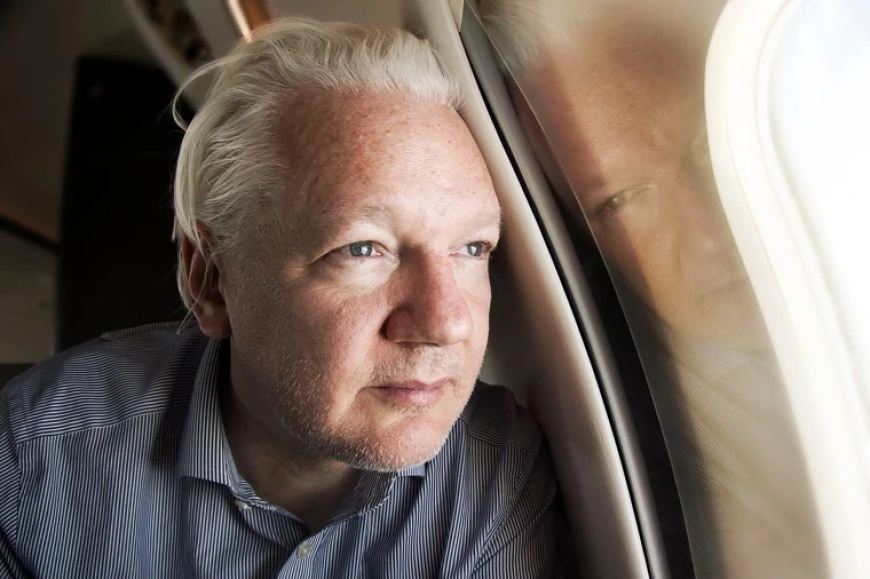Julian Assange Released from British Prison, Set to Plead Guilty in U.S. Conspiracy Case

WikiLeaks founder Julian Assange was released from a British prison on Monday and is en route to the Northern Mariana Islands, where he will plead guilty to a conspiracy charge as part of a plea deal with the U.S. Department of Justice, according to court documents. Assange, who has spent the past five years in Belmarsh Prison, London, and previously seven years in the Ecuadorian Embassy, has been fighting extradition to the United States on charges related to one of the largest publications of classified information in American history.
The plea deal marks the end of a prolonged legal saga over Assange's role in publishing classified documents obtained from Chelsea Manning, a former U.S. Army intelligence analyst. These documents included detailed reports on the wars in Afghanistan and Iraq, U.S. diplomatic cables, and assessments of detainees at Guantánamo Bay.
Court documents indicate Assange will plead guilty to conspiracy to obtain and disclose national defense information. The agreement, filed in the U.S. District Court for the Northern Mariana Islands, is expected to lead to a 62-month sentence, with credit for time already served, allowing Assange to return to his native Australia.
Global Reactions
Australian Prime Minister Anthony Albanese welcomed the development, stating, "The case has dragged on for too long. There is nothing to be gained by his continued incarceration, and we want him brought home to Australia."
Assange's mother, Christine Assange, expressed relief in a statement: "I am grateful that my son’s ordeal is finally coming to an end. This shows the importance and power of quiet diplomacy." His wife, Stella Assange, currently in Australia with their two young children, said she was "elated" and plans to seek a pardon for her husband, citing concerns for global journalistic freedom.
Flight and Final Hearing
Footage posted by WikiLeaks showed Assange boarding a plane at Stansted Airport near London on Monday afternoon. The plane made a refueling stop in Bangkok before continuing to the Northern Mariana Islands. Assange is scheduled to appear in court at 9 a.m. local time Wednesday (7 p.m. ET Tuesday).
Historical Context and Broader Implications
Assange's charges stem from actions taken during President Barack Obama's first term. The publication of classified documents by WikiLeaks, starting in late 2009, revealed sensitive information about U.S. military operations and diplomatic activities. This unprecedented release has sparked ongoing debates about national security, press freedom, and the public's right to know.
The U.S. government has maintained that Assange's actions endangered lives and compromised national security. The case against him has been a focal point in discussions about the limits of investigative journalism and the protection of whistleblowers.
Continuing Developments
In a statement, National Security Council spokesperson Adrienne Watson clarified that the plea deal decision was made independently by the Department of Justice, with no involvement from the White House.
Assange's release and potential return to Australia mark a significant turn in a case that has captivated global attention for over a decade. As the legal proceedings conclude, the implications for press freedom and the handling of classified information remain topics of critical importance and ongoing debate.













































